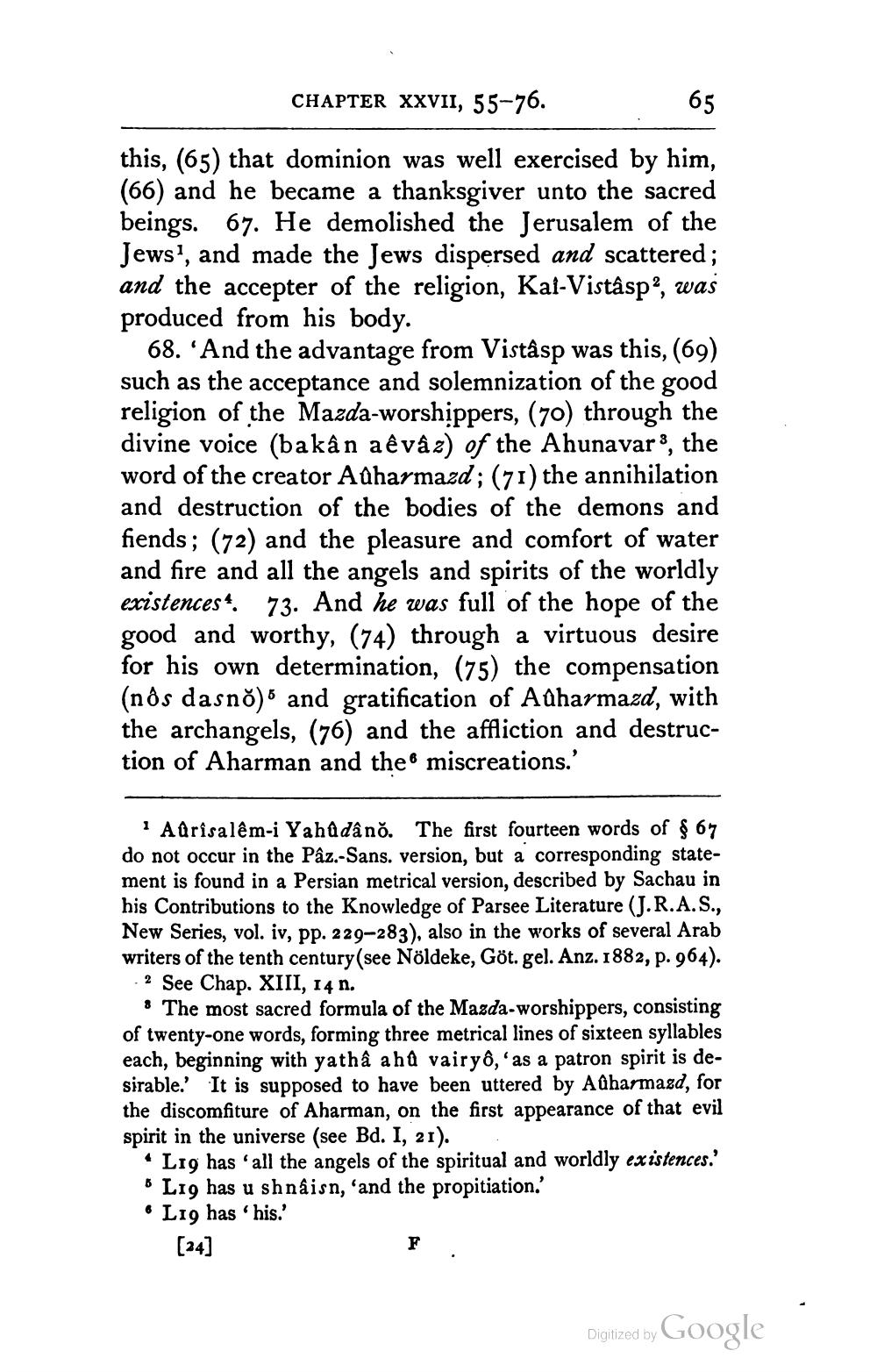________________
CHAPTER XXVII, 55–76.
65
this, (65) that dominion was well exercised by him, (66) and he became a thanksgiver unto the sacred beings. 67. He demolished the Jerusalem of the Jews, and made the Jews dispersed and scattered; and the accepter of the religion, Kai-Vistâsp?, was produced from his body.
68. 'And the advantage from Vistâsp was this, (69) such as the acceptance and solemnization of the good religion of the Mazda-worshippers, (70) through the divine voice (bakan aê vâz) of the Ahunavar 3, the word of the creator Adharmazd; (71) the annihilation and destruction of the bodies of the demons and fiends; (72) and the pleasure and comfort of water and fire and all the angels and spirits of the worldly existences“. 73. And he was full of the hope of the good and worthy, (74) through a virtuous desire for his own determination, (75) the compensation (nós dasno)" and gratification of Allharmazd, with the archangels, (76) and the affliction and destruction of Aharman and the miscreations.
* Adrîsalêm-i Yahů dâ no. The first fourteen words of $ 67 do not occur in the Paz.-Sans. version, but a corresponding statement is found in a Persian metrical version, described by Sachau in his Contributions to the Knowledge of Parsee Literature (J.R.A.S., New Series, vol. iv, pp. 229-283), also in the works of several Arab writers of the tenth century(see Nöldeke, Göt. gel. Anz. 1882, p. 964). . 2 See Chap. XIII, 14 n.
The most sacred formula of the Mazda-worshippers, consisting of twenty-one words, forming three metrical lines of sixteen syllables each, beginning with yatha a hů vairyô,'as a patron spirit is desirable.' It is supposed to have been uttered by Allharmasd, for the discomfiture of Aharman, on the first appearance of that evil spirit in the universe (see Bd. I, 21). .
• Lig has all the angels of the spiritual and worldly existences.' • L19 has u shnâisn, 'and the propitiation.' • L19 has 'his.'
[24]
F
.
Digitized by Google




